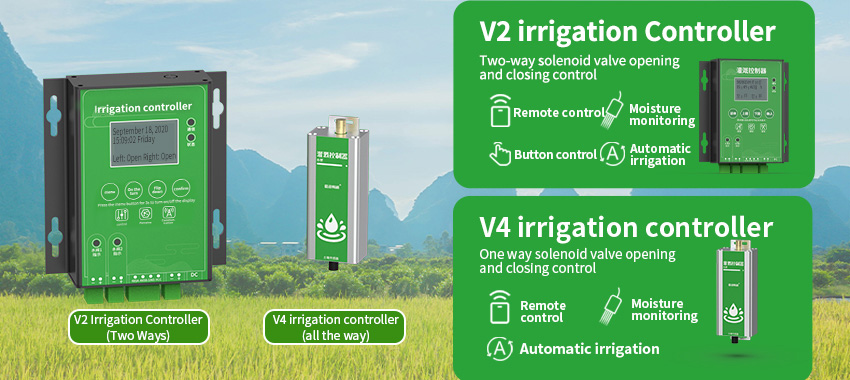Smart Irrigation Controller
To address this issue, smart irrigation controller have been developed that utilize modern technology to optimize watering while minimizing waste. These controllers use weather data, soil moisture sensors, and other inputs to determine the precise amount of water needed for each zone of a farm or garden.

Agriculture is one of the largest consumers of water worldwide, and irrigation systems are essential to keep crops growing efficiently and economically. However, traditional irrigation methods often result in significant waste through overwatering, evaporation, and runoff.
The key benefits of smart irrigation controllers:
Water Conservation:
By using only the exact amount of water needed to keep plants healthy, smart irrigation controllers can save up to 50% of the water used by traditional irrigation systems. This not only preserves the environment but also reduces costs for farmers.
Improved Crop Yield:

Overwatering can lead to root rot and other problems that reduce crop yields. Smart irrigation controllers ensure that crops receive just the right amount of water, leading to stronger plants and better yields.
Flexibility:
Smart controllers can be programmed to work with different types of soil, plant species, and weather conditions. This makes them highly adaptable to unique farming situations.
Cost Savings:
Because smart controllers use less water, farmers can expect to see significant savings on their water bills.

Remote Management:
Many smart controllers allow farmers to monitor and adjust their irrigation systems remotely, saving time and improving efficiency.
The technology behind smart irrigation controllers varies, but most systems rely on a combination of sensors, software, and communications equipment. Soil moisture sensors detect the level of water in the soil, while weather stations provide information about current and forecasted weather conditions. All of this data is processed by software that can create irrigation schedules tailored to each zone of a farm.
Smart controllers can be combined with other agricultural technologies to create automated drip irrigation systems to further reduce water waste. This combination of technologies could revolutionize agricultural practices and lead to a more efficient future for farmers around the world.